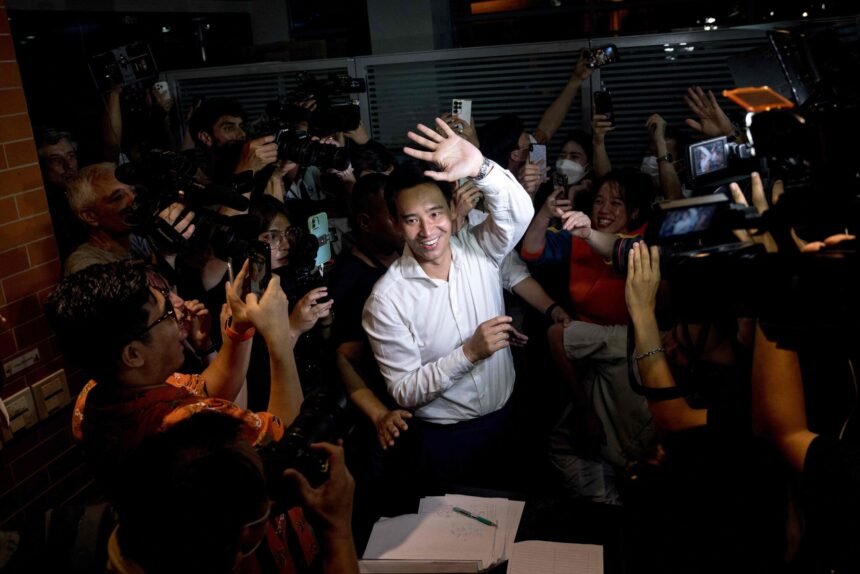Thailand’s opposition parties won a resounding victory in the general election held on Sunday, outperforming the parties linked with the military government that has held power for almost a decade. With 99% of the votes counted, the liberal Move Forward Party and the populist Pheu Thai Party were in the lead. However, it is uncertain whether either party can form a government due to parliamentary rules that have been skewed in the military’s favor since the 2014 coup. To govern, the opposition parties will need to make deals and win support from several groups, including the junta-appointed Senate that has previously supported military parties. The Move Forward Party, which performed exceptionally well due to the support of young voters, has promised institutional reform and the dismantling of monopolies.
Move Forward’s leader, Pita Limjaroenrat, a former ride-hailing app executive, has described the election’s results as “sensational” and pledged to remain true to the party’s values when forming a government. The preliminary results showed Move Forward in the lead, followed closely by Pheu Thai. Reuters calculations indicate that both parties are set to win more than triple the number of seats of Palang Pracharat, the political party of the junta, and the army-backed United Thai Nation party.
The preliminary results of the election are a significant blow to the military government and its allies. However, with the parliamentary rules in their favor and influential figures supporting them behind the scenes, they may still have a role in government. Prime Minister Prayuth Chan-ocha, a retired general who led the last coup, had campaigned for continuity, warning that a change in government could lead to conflict. On Sunday, he left his party headquarters quietly, where there were few supporters to be seen.
Founded by the self-exiled tycoon Thaksin Shinawatra, Pheu Thai has won the most votes in every ballot since 2001, including two landslide victories. However, three of its four governments have been ousted from power. Pheu Thai is still widely popular among working-class people and was hoping to be swept back to power in a landslide on nostalgia for its populist policies such as cheap healthcare, micro-loans, and generous farming subsidies. Thaksin’s daughter, Paetongtarn, has been tipped to become prime minister, following in the footsteps of her father and aunt, Yingluck Shinawatra, who were both overthrown in coups.
Move Forward saw a late-stage rally in opinion polls and hoped that 3.3 million first-time voters would support its liberal agenda, which includes plans to weaken the military’s political role and amend a strict law on royal insults used to stifle dissent. Thitinan Pongsudhirak, a political scientist at Chulalongkorn University, said that Move Forward’s surge demonstrated a significant shift in Thai politics. “Pheu Thai fought the wrong war. Pheu Thai fought the populism war that it already won. Move Forward takes the game to the next level with institutional reform. That’s the new battleground in Thai politics,” he said.
